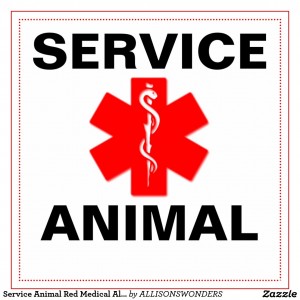Service Animal Accommodation Information for Domestic Violence Service Providers
Introduction
This document is adapted from the “Model Protocol on Service Animals in Domestic Violence Shelters” published in 2009 by Phil Jordan and Summer Carrick for the Washington State Coalition Against Domestic Violence.
This document is organized into sections that provide information and guidance on the roles that domestic violence advocates, shelters, and agencies can have when serving people with disabilities who have service animals, the requirements by law, and the best practices within the field. The sections of this document are:
- Basic information about service animals and the people who use them (page 4);
- Basic information about the laws that apply to non-residential and shelter services and service animals (page 7);
- Best practices for domestic violence shelters (page 11);
- Best practices for domestic violence agencies’ non-residential programs (page 20); and
- Ideas for Partnerships, Collaborations, and Resources (page 26).
Acknowledgements
The Maryland Network Against Domestic Violence is appreciative of all of the Service Animal Working Group members who have given their time, expertise and support for this project. Special thanks go to Amber Guthrie and Gary Norman, Esq. who offered many hours of assistance in developing this document and to Erin Boguski of MNADV for editing this guide. Working Group Members:
- Amber Ariemma, LGPC, Crisis Intervention Center
- Barbara Bogush, Baltimore County Department of Social Services
- Maria Disogra, HopeWorks
- Sarah Downs, HopeWorks
- Amber Guthrie, MA, Maryland Network Against Domestic Violence
- Katie Flory, Maryland SPCA
- Emily Hovermale, Humane Society of the United States
- Inga James, MSW, PhD, Heartly House
- Gary C. Norman, Esq., L.L.M, Attorney, Consultant, and State Civil Rights Commissioner
- Lauren Summers, Maryland Department of Human Resources
- Naomi Taffet, CHANA
